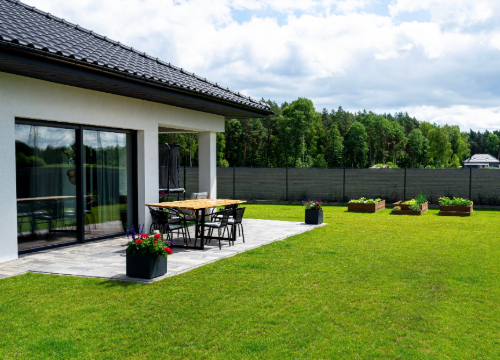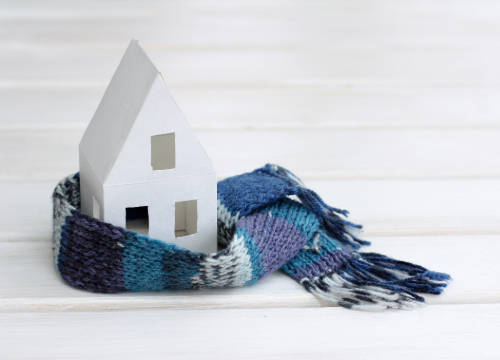Buying your first home will likely be one of the biggest investments of your life and the numbers will seem huge. But don’t let that put you off. Breaking it down into small steps and starting with the first one makes things much easier.
Below are some tips on getting a deposit together and estimating how much you can afford to borrow.
Working out how much you’ll need for a deposit
When you’re buying an existing home to live in, in most cases a lender is only allowed to lend you up to 80% of a home’s value. This is known as the ‘loan-to-value ratio’ or LVR. So you will need a deposit that’s at least 20% of the home’s value. For example, if you want to buy a home valued at $500,000 you will need at least $100,000 for the deposit.
Welcome Home Loans
First home buyers may be eligible for a Welcome Home Loan, which only requires a 10% deposit. Welcome Home Loans are underwritten by Housing New Zealand, which allows selected lenders to provide the higher LVR loan of up to 90%. To find out more visit the Welcome Home Loan website.
Building a new home
If you’re borrowing to build a brand new home, rather than buying an existing one, you may only need a 10% deposit.
Smaller deposits come with added costs
Remember that a smaller deposit means you’ll have to borrow more for the same house. That typically means larger loan repayments and paying more interest over the life of the loan. High LVR loans can also come with higher lender charges, such as increased interest rates or compulsory mortgage insurance payments to cover the lender’s higher level of risk.
Saving for your home loan deposit
Once you have a realistic deposit in mind, it’s time to start saving towards your goal. The Sorted website has a handy budget planner and some great tips on how to save.
A good savings record will also show your lender that you can afford home loan repayments that are higher than you’re currently paying in rent, while also paying rates and home insurance premiums.
Boosting your savings with KiwiSaver
Anyone who’s been paying into KiwiSaver funds for at least three years could qualify for a KiwiSaver HomeStart grant. If you’re buying an existing home, this could add up to $5,000 to your deposit. For new-build homes or land to build on, it’s up to $10,000. If you’re buying with another person and you’ve both been in KiwiSaver for at least five years, you can put your HomeStart grants together.
Another way to boost your deposit savings is with a KiwiSaver first-home withdrawal. For this, you need to have been a member of KiwiSaver for at least three years and be buying your first home. If your KiwiSaver fund allows these withdrawals, you may be able to take out all or some of your savings, provided you leave at least $1,000 in the fund. Even if you have previously owned property, but no longer do so, you can ask Housing New Zealand to assess whether you still qualify, because you’re in the same financial position as a first home buyer.
To learn more about the KiwiSaver HomeStart grant and KiwiSaver first-home withdrawal, visit the Housing New Zealand website.
Getting help from other people
While your lender will still need to see that you can make your loan repayments, you may not have to save the deposit on your own. You could have some or all of your deposit gifted to you by a relative. Some lenders offer second home loans to boost your deposit. These are secured by your new home and a family member’s home, and you are both responsible for ensuring the repayments are made, but how much you each pay is up to you.
Another option is buy a house with one or more other people. These arrangements typically have a legal agreement that covers things like what each person’s share is, and what happens when one person wants to sell up or if one person dies. It’s worth noting that even though you may have individual home loans to repay, everyone is responsible for the mortgage over the property until all loans are repaid.
Calculating home loan repayments
Most lenders have home loan repayment calculators on their websites, and there’s also one on Sorted.org.nz. You can also find out about the different types of home loans. When it comes to choosing a lender, make sure you shop around, as interest rates, fees and charges can vary quite a bit. Another option is to use a qualified mortgage broker.
Getting the right insurance
If you're borrowing from a lender, they will likely require you to have Comprehensive Home insurance in place - they'll let you know what type of insurance they require you to get if you're not sure. So once you've found your dream home, get a quote and buy online in just 10 minutes.
You might also like...
-
 December 2024Lifestyle Blog | State Insurance
December 2024Lifestyle Blog | State InsuranceSurviving the holidays
-
 September 2024Lifestyle Blog | State Insurance
September 2024Lifestyle Blog | State InsuranceSpring prep your home and garden.
-
 June 2024Lifestyle Blog | State Insurance
June 2024Lifestyle Blog | State InsurancePreparing your home for winter
